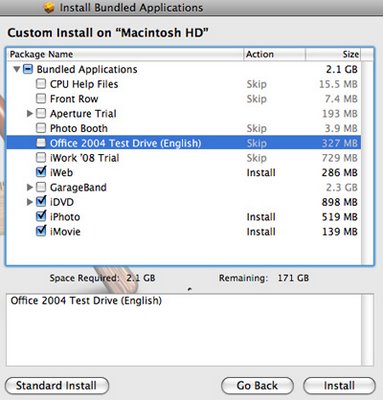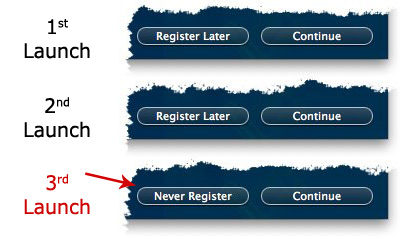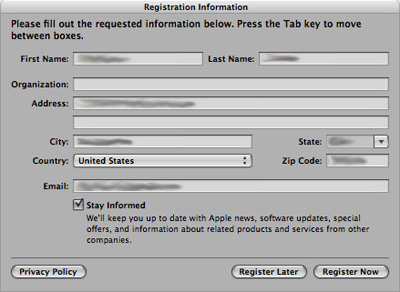Paulo Ávila
Balancing On The Ethical Line
“As in any engineering profession, ethics is a key component of Software Engineering. Knowing that ethics is such an essential and basic rule of engineering, I’m disappointed when I encounter software products (large or small) that don’t adhere to software engineering ethics. Or that companies even hire software developers when they don’t enforce an ethical background. I’ve stumbled upon some recent examples that have bothered me enough to write about.…”
Words: 1078
As in any engineering profession, ethics is a key component of Software Engineering. In fact my college software development courses at Cal Poly emphasized engineering ethics as much as any of the other topics because although developers need to know about many technical disciplines (such as versioning, the software life cycle, software prototyping, etc.), they also have expectations to meet and responsibilities towards those who use their software — and their ethical foundation is what will define how they face up to these responsibilities.
Knowing that ethics is such an essential and basic rule of engineering, I’m disappointed when I encounter software products (large or small) that don’t adhere to software engineering ethics. Or that companies even hire software developers when they don’t enforce an ethical background. I’ve stumbled upon some recent examples that have bothered me enough to write about.
Forcing By Confusion
When customizing the installation of Mac OS X 10.5 (Leopard), I am given a list of optional applications to install. Some options expand to reveal dependent sub-items, who’s relationship is clearly indicated by the grouping of which they are a part.

As I clicked on several of the check boxes I noticed that the Office 2004 Test Drive option enabled itself automatically (without me having directly clicked on it). This behavior is not what is expected of a checkbox. A check box is suppose to toggle a single option. Only when an obvious dependancy to another item exists should it also change the state of another option.
In this scenario, there is obviously no dependency between choosing to install Office 2004 Test Drive and any other option. If there were, it would be indicated by a hierarchy as it is done with iWeb, GarageBand and iDVD. Bypassing this expected behavior and thus tricking the user is unethical.
Forcing By Deception
After installing iWork ’08 I was, not surprisingly, presented with an option to register* my use of the product with Apple. Unlike in most registration dialogs, I was not given an option to Never Register or Cancel. Rather, I was only allowed to register or postpone my decision.
I thought: “Man, am I really gonna have to click on Register Later for all of eternity?”
Well, it turns out that I am stubborn enough so that is exactly what I decided to do even if it meant dealing with the dialog every time I wanted to use the software that I purchased.
But once I launched the product a third time, the Register Later button turned into a Never Register button, which is exactly what I had wanted in the first place. Why couldn’t that option have been offered initially? Why did they try to deceive me to register before giving me the option to not do so? They could at least have informed me from the get-go that the option would change down the line.

To change the options available to a user without any evident reason to do so is deceptive. It makes the user think that those initial options are the only ones available. I for one, could have easily been convinced to just go ahead and register if I wasn’t as stubborn as I am. Deceiving people with an artificial mandate is unethical because you influence their ultimate decision by omitting valid options.
Forcing By… Forcing
I encountered a similar registration dialog upon installing Aperture and this time the fields contained even more personal information — all of which was pre-filled with data from my address book:

As in my previous example, I clicked on the Register Later button hoping that eventually I would be given the option to Cancel or Never Register. Well, I’ve been clicking on the same button for more than six months now so I think it’s safe to assume that it will never come up. I guess persistence isn’t always a solution.
Even though I’m not forced to register, eventually I might click the Register Now button accidentally. In reality, I have very little control over the situation since all my information is automatically filled in and my options are limited. Always having an option to postpone my registration is a clear indication that it isn’t a necessary step and I should therefore be given an option to forgo it permanently†.
If one considers how some viruses work, this conduct doesn’t sound so innocent anymore. While a virus would obtain and send my information without my knowledge or approval, the behavior in use here waits for me to make a mistake and click on the Register Now button by accident. It should be my choice whether to have all my contact information sent to God knows where and in this scenario, I’m not really being given the control that I deserve.
The Rant
So who’s to decide what is ethical or not? Well…we are. Corporations only get away with this crap because users of their products put up with it. The majority of the population would rather “just move on” even if it means complying with an imposed action. I feel differently. I find it annoying and I refuse to conform simply because “it’s more convenient.”
Who knows, maybe the manipulative intentions in the examples above weren’t premeditated or will change in future releases. But it’s important for developers and product managers to realize that little things such as these can damage a company’s image and the trust that users have in their products. If you’re manipulating me in this way, how am I to trust that you’re not doing it in other, dare I say worse ways without my knowledge?
Users need to be aware of when they’re being pushed around unnecessarily and should definitely be mindful of what they click on. After all, we can’t expect corporations to have the user’s best interest in mind since their ultimate concerns are to their stock holders and their profit margins. However, we can expect them to behave ethically and we should hold them accountable for just that.
*_Registering_ is different from _activating_ a product with a serial number and should be optional. The information normally requested is not at all necessary for the operation of the software.† I never register because 99% of the time there is no need or benefit to release the kind of personal information requested.